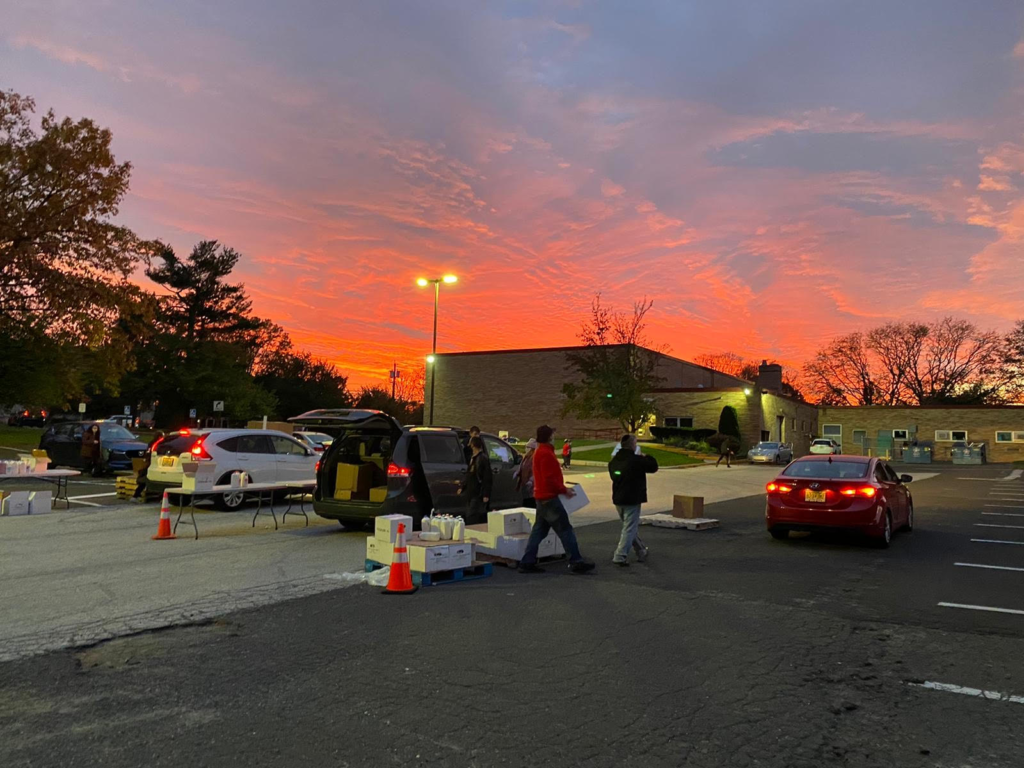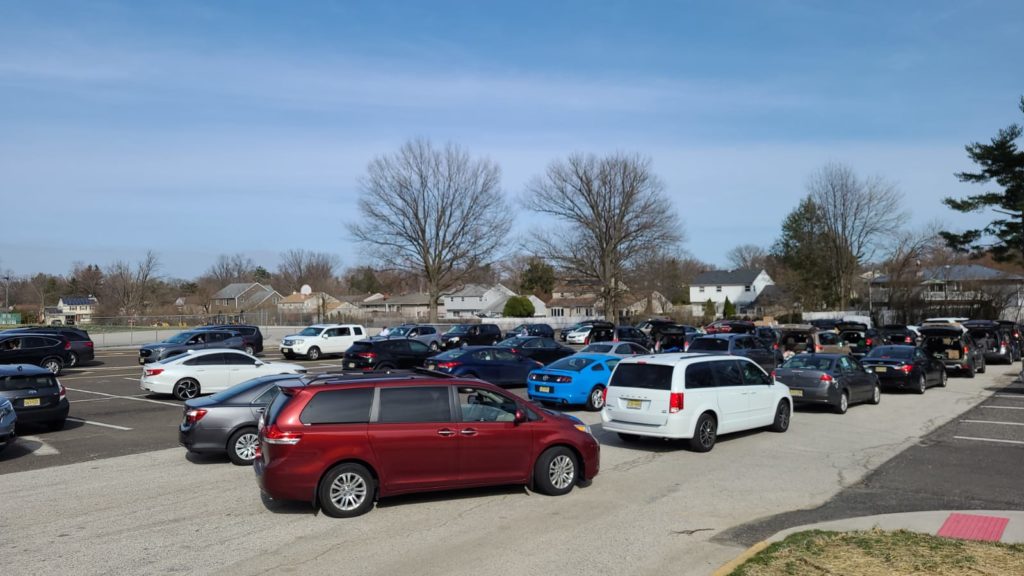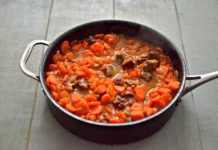
Photo by Samuel Gluck
When Yonaton Yares started distributing kosher meals to families in the parking lot of his synagogue last May, he had no idea how much the meal assistance program would grow over the coming months.
His initial goal was to provide nutritious kosher food for children who were not receiving meals in school due to remote learning, and about 200 families signed up to pick up the meals from Young Israel of Cherry Hill in New Jersey.
Word of the program spread quickly, and it began to draw families from across southern and central New Jersey as well as Philadelphia. Within a few months, Yares and his volunteers moved to Joyce Kilmer Elementary and Chabad Lubavitch of Camden County, where they coordinated food distribution every Tuesday.
Now, they provide meals to more than 450 families, or approximately 2,000 children.
Although the food is kosher, the food pantry is available to all, and serves families from various religious backgrounds. Many kosher foods also meet the dietary requirements for Muslim families who eat halal.
“We serve everyone equally,” said Rabbi Yosef Notis, program coordinator and dean of Bnos Devorah School in Lakewood, New Jersey.
He added that in the beginning of the program, when demand for meals outstripped supply, some parents said they should be prioritized because their children were enrolled in the school where the meals were served, but the volunteers insisted on keeping it open to all.
Yares, a doctoral student at Fairleigh Dickinson University and a father of five, has previous experience working to combat food insecurity. His first job out of college was working for a food pantry run by Jewish Family and Children’s Service during the height of the Great Recession in 2008. The diverse backgrounds of the visitors surprised him.
“You had Ph.D.s, you had others who you wouldn’t think would need to use a food pantry,” he said.
Yares said there was a point when his own family had to rely on food stamps, and he knows how hard it can be to ask for help. He also knows how many hoops that people enrolled in food supplement programs have to jump through to access relief.
To lessen the stigma around receiving food assistance, Yares designed the meals program to be accessible to any family with children ages 1 to 18, regardless of income. Parents are only required to complete a registration form to participate.
“So often people say, ‘Oh, I don’t want to take from people who are in need,’ and I say, ‘This is for everyone,’” Yares said. “We are all in need right now. We all have kids at home, and they’re not supposed to be home, and they eat a lot.”

Photo by Ilana Yares
The U.S. Department of Agriculture reported that more than 5 million children experienced food insecurity in 2019. That number jumped to more than 13.9 million children in 2020 as a result of the economic crisis that accompanied the pandemic, according to an analysis by the Brookings Institute.
Yares said the scope of the current hunger crisis means federal and state governments have tossed many of the normal eligibility regulations for food assistance programs in an effort to meet skyrocketing demand as quickly as possible.
Yares was inspired to design the program after he learned about a similar project for Jewish students in Passaic run by Teach NJ, an advocacy group for the state’s nonpublic schools. He got funding through the Department of Agriculture’s Summer Food Service Program, which reimburses program operators that provide food for low-income kids when school is not in session.
The volunteers started by providing bagged lunches but quickly moved to boxes when they realized the scope of the demand. Each box contains seven breakfasts and seven lunches, with healthy snacks as well as regular and chocolate milk. On Passover, food boxes contained matzah and macaroons along with other kosher for Passover items.
“In a typical week, you’ll have some turkey in there, some cheese, falafel, rolls, blintzes, some fish,” Notis said. “It’s really a very nice selection.”
Leftovers, especially dairy, are donated to other local food pantries. Yares said that since dairy allergies are common within the Jewish community, the program has donated thousands of gallons of milk to the Cherry Hill Food Pantry.
Volunteer Samuel Gluck uses his experience from working in a warehouse many years ago to help organize other volunteers and make sure the food pickup lines run smoothly.
“The actual flow of traffic is important,” he said. “We don’t want to block off a road. We want to make sure we get as many cars out as quickly as possible to make sure there’s no wait time as well.”
Gluck said each pickup site has 15 to 20 volunteers, with two or three additional people directing traffic.
“People really want to get involved and help out families. It’s great,” he said.
Yares plans to continue providing kosher meals until at least Dec. 30. After that, much will depend on demand and government funding, but he thinks the success of the program will make it easier to keep it going.
“I didn’t know that this would become one of my greatest accomplishments of my life,” he said. “I just wanted to help and do no harm.”






